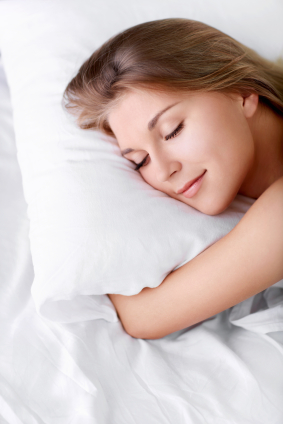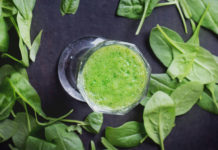by: Dr. Craig A. Maxwell
Having trouble falling asleep? Can’t seem to stay asleep? Fifty million Americans are in the same boat right along with you. When you can’t sleep, you feel anxious, worn out, and struggle through your days, snapping at people and experiencing emotional outbursts.
While it can be tempting to ask your doctor for a prescription sleep aid or rely on over-the-counter pills to get you through the night, they may not be the best option when used over long periods of time. Learn how to get better sleep naturally with these natural tips and supplements.
What Causes Insomnia?
- Dietary Factors
Dietary factors are a commonly-overlooked cause of insomnia. Highly-processed foods contain neurotoxic chemicals such as aspartame, MSG, and food dyes that can heighten anxiety and make it difficult for you to get a good night’s sleep. Gluten intolerance is another hidden cause of sleeplessness. Gluten is a protein found in wheat, barley, and rye and it acts as a neurotoxin and addictive opiate to those who can’t process it. Excessive consumption of energy drinks can also lead to insomnia. The same goes for alcohol. A glass of wine may relax you, but a whole bottle will make insomnia much worse.
- Stress/Anxiety
Everyday stressors can add up, causing chronic feelings of anxiety, restlessness, and unease. Racing thoughts, gastrointestinal upset, and the aches and pains associated with stress can make it difficult to sleep well.
- Lack of Exercise
A sedentary lifestyle can also make getting a restful night’s sleep difficult. Studies have shown that just 30 minutes of moderate exercise 3-4 times per week can “dial down” a hyperactive stress response, making getting to and staying asleep easier.
- Certain Medications
Certain medications can contribute to sleep loss as well. Patients who take alpha blockers, beta blockers, ACE inhibitors, angiotensin II-receptor blockers (ARBs), cholinesterase inhibitors, and statin drugs have all been linked to insomnia. Over-the-counter decongestants can also cause insomnia because of their stimulant effect.
- Environmental Factors
Environmental factors such as light, sound, sub-optimal sleep temperature, pets in the bed, and even your sleep partner can interfere with quality sleep.
The Addictive Dangers of Synthetic Sleep Aids
Millions of people start taking a prescription or over-the-counter sleep aids with the intention of only using them for a few days or weeks. A particularly stressful event, an illness or a new medication may prompt short-term use that quickly turns into a long-term need.
Many sleep aids may cause you to drop off fast but you will not induce the deep, restful sleep you need to function at your best. Also, long-term use of any type of synthetic sleep aid can induce sleep walking, rebound insomnia, memory loss, gastrointestinal upset, liver toxicity, and even permanent brain damage in some individuals.
Get Better Sleep Naturally
Taking synthetic drugs to knock you out for the night won’t address the possible underlying factors of your insomnia.
These tips will:
Dietary Changes
For better sleep, slowly wean off junk food and replace it with whole food like organic vegetables, fruits, nuts, seeds, poultry, fish, and healthy fats. Cherries have been shown to boost your natural stores of melatonin, which can help promote sleep.
Environmental Changes
Making changes to your sleep environment can greatly improve your quality of sleep. Human beings sleep best in complete darkness and silence. If you tend to sleep with your television on, the lights and sounds coming from the TV will keep you tossing and turning all night even if you’re not aware of it.
Temperature is important as well. Optimal sleep temperature is 65 degrees Fahrenheit. Earplugs and an eye mask can also help if certain sights and sounds are beyond your control.
Supplements
- Chelated Magnesium
In my practice, I have found that over 85% of my patients have a magnesium deficiency. Magnesium is vital for the function of GABA receptors. GABA is a neurotransmitter responsible for switching the brain “off” when it becomes over-excited. Without this essential neurotransmitter, noticeable neurological problems result.
According to a study published in Biological Psychiatry, those with low levels of GABA show signs of impulsivity, aggressive behavior, addictive behavior, and chronic trouble with anxiety and insomnia.
For my patients who struggle with anxiety and insomnia, I recommend key dietary changes, relaxation exercises, and Diamond Nutritional’s Chelated Magnesium.

Though there are many commercial magnesium supplements available on the market, I do not recommend using many of them, as the type of magnesium and quality varies. Furthermore, many of them also contain additives and fillers that may affect your health.
Chelated magnesium is the smallest form of magnesium available, which means it’s easy for your body to absorb and make use of.
- Valerian Root Extract
Valerian root extract has been used for centuries to treat anxiety and insomnia. Valerian is in a class of herbal supplements called ‘natural hypnotics’.
Unlike synthetic hypnotics (benzodiazepines) herbs like valerian root extract induce a feeling of mild relaxation and detachment from anxiety so sleep comes more naturally.
Valerian root extract also helps you sleep more deeply, which means you may feel more rested even if you haven’t been able to get the requisite 8 hours.
- Jujube Extract
Jujube extract has been used to treat mild anxiety, sleeplessness, and nervousness in Eastern cultures for the past 4,000 years. The chemical compound responsible for its relaxation benefits is jujuboside A, which has been shown to prevent nerve cell damage when you’ve been exposed to toxins.
- Passionflower Extract
Passionflower extract was used by the Native Americans to treat anxiety, insomnia, and seizures. Adding it to your bedtime routine can help ease feelings of anxiety and jitteriness that may be keeping you from a good night’s sleep.
- L-Theanine
L-theanine is an amino acid derived from tea that has been shown to improve quality of sleep. It works by blocking the binding of L-glutamic acid to glutamate receptors in the brain. This has been shown improve the way your body handles stress. Studies have also shown that L-theanine helps decrease the anxiety and sleep difficulties associated with ADHD.
With Diamond Nutritional’s Sleep Support Formula, there’s no need to buy a bunch of natural sleep aids at once and try to figure out how best to mix them. This sleep support formula contains just the right blend of valerian root extract, jujube seed extract, passionflower extract, and L-theanine to help you fall into a restful sleep without the side effects associated with synthetic sleep aids.

Even if you’ve relied on prescription or over-the-counter sleep aids for years, you can slowly wean off of them and use dietary and lifestyle changes as well as the right natural supplements to get the healing shut-eye your mind and body crave.








